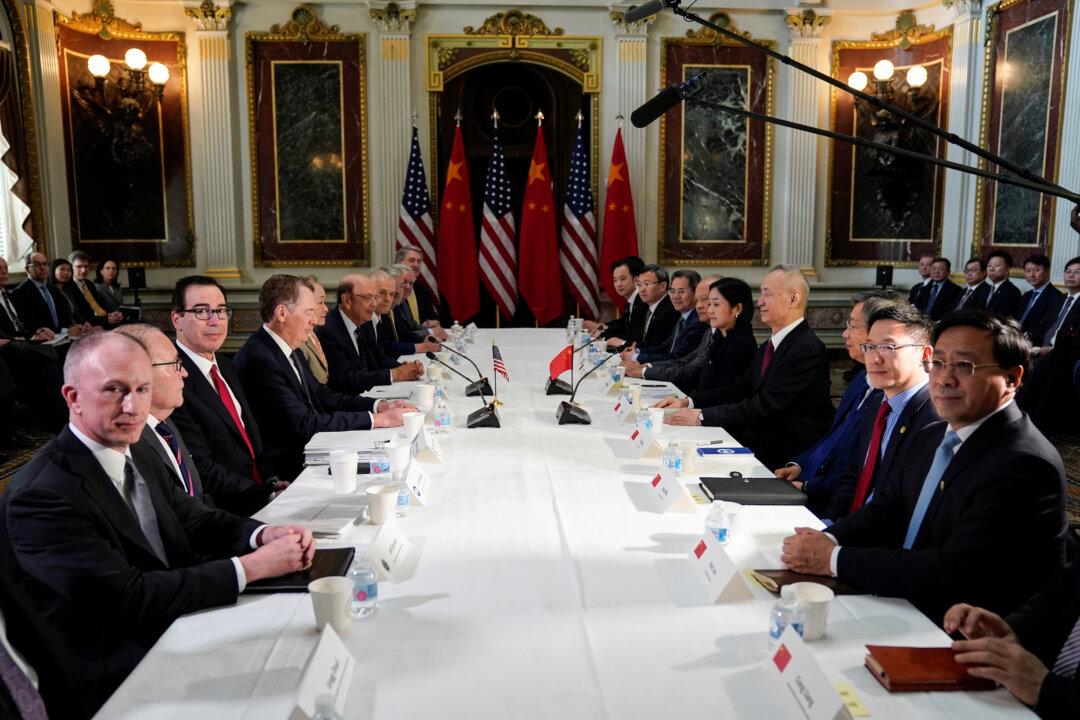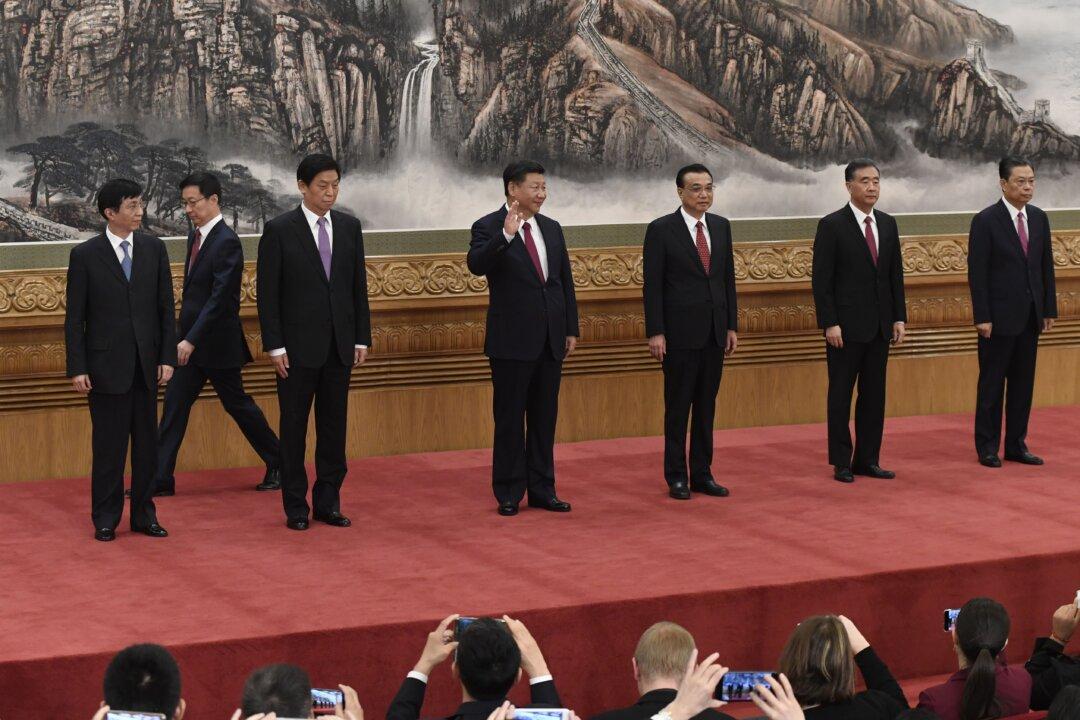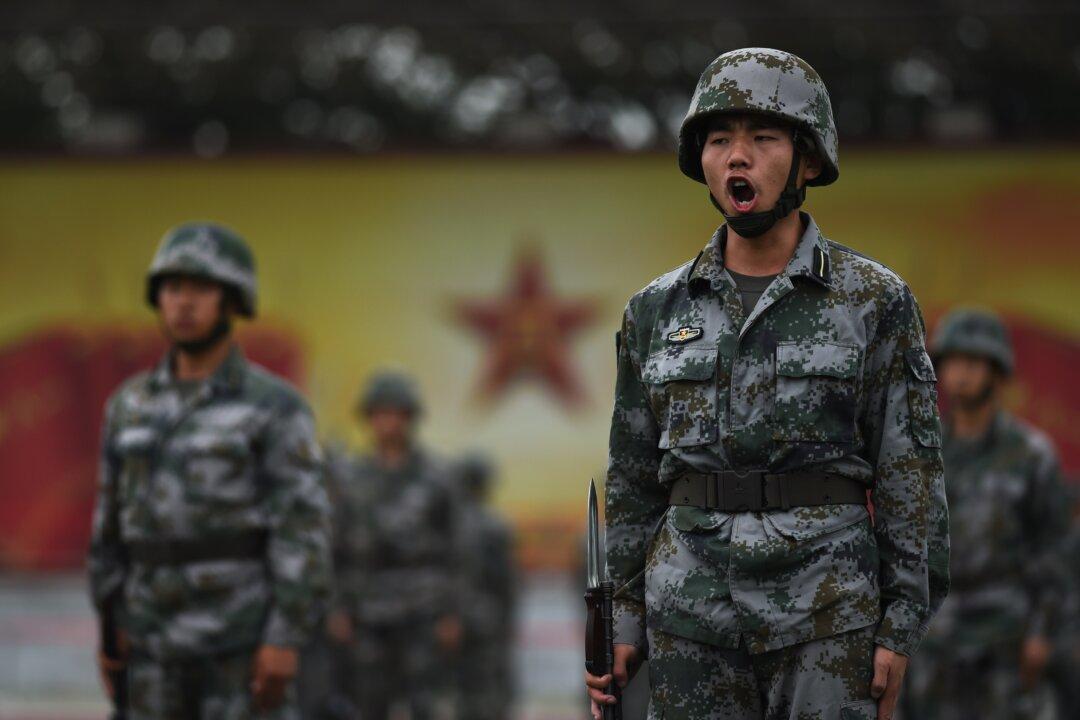The Chinese Communist Party (CCP) should adhere to the same rules that it sets the citizens, particularly in terms of disclosing personal information and holdings.
For example, the Party recently began forcing people to use their real names on the Internet, or when buying cell phones .
Since the push for people to use their real names is directly related to curtailing an undesirable behavior (by instilling fear), the policy should be directed toward what most needs curtailing: corruption.
Premier Wen Jiabao has emphasized in several public speeches recently that corruption would end the rule of the CCP. He believes that the biggest threat to the CCP’s rule comes from internal corruption, a fact to which all Chinese would agree.
Notwithstanding, the public is terribly not concerned about what happens to the CCP, but mainly with the severe damage done to social justice.
Given the leaders’ imperatives, and their tried and true methods, real name registration of corrupt CCP officials should be the first thing to be implemented. After all, it is the CCP, not any other group, that has done the most harm to society and the people since taking power. Hence, it is imperative that CCP officials be subject to the real name registration system.
It’s common practice worldwide that government officials make public their assets. As officials exercise power bestowed to them by the public, it is vital for them to gain the public’s trust. However, according to official reports, 90 percent of CCP officials are against the policy.
The reasons are not hard to understand, assuming their assets are from unsavory sources. While the CCP worries about threats to its ruling power, it has already lost the trust of the public. A popular joke that “There would be no innocent officials if 90 percent were executed” reflects precisely what the people think of the Party.
I recall a 1997 election debate in Hong Kong, when the candidate was asked whether he was a CCP member. Rather than answering the question directly, he temporized: “Whether I am a member is not important. The CCP is not necessarily bad.” The voter said again: “I didn’t ask you whether it is good or bad. I only asked you if you were a member.” The candidate was silent, but those present got the message.
Real name registration on the part of the CCP would be a mechanism to gain trust, and it is a simple matter of logic that a ruling authority cannot last long without trust. But the CCP has its own logic, which always deviates from the universally accepted.
The cover ups, the lack of transparency, and the forcing of citizens to divulge their personal information for commonplace transactions is a reflection of the authorities’ fears, and their commensurate attempt to strike fear in the populace. The instilling of fear has always been at the heart of Communist Party rule, and there has never been a country ruled by a Communist Party that has not sought to make the people fear it.
Increasingly, however, the Chinese people are demanding that the CCP begin adhering to universal logic and values. They are beginning to expect that CCP officials make public their assets, and Hong Kong residents expect that their rulers also make public whether they are covert CCP members.
Obfuscationist phrases claiming that these matter needs to be approved by the “relevant authorities,” or are decided by “regulations of the superior administration,” should be disposed of. Apply real name registration to the ruling party first.
For example, the Party recently began forcing people to use their real names on the Internet, or when buying cell phones .
Since the push for people to use their real names is directly related to curtailing an undesirable behavior (by instilling fear), the policy should be directed toward what most needs curtailing: corruption.
Premier Wen Jiabao has emphasized in several public speeches recently that corruption would end the rule of the CCP. He believes that the biggest threat to the CCP’s rule comes from internal corruption, a fact to which all Chinese would agree.
Notwithstanding, the public is terribly not concerned about what happens to the CCP, but mainly with the severe damage done to social justice.
Given the leaders’ imperatives, and their tried and true methods, real name registration of corrupt CCP officials should be the first thing to be implemented. After all, it is the CCP, not any other group, that has done the most harm to society and the people since taking power. Hence, it is imperative that CCP officials be subject to the real name registration system.
It’s common practice worldwide that government officials make public their assets. As officials exercise power bestowed to them by the public, it is vital for them to gain the public’s trust. However, according to official reports, 90 percent of CCP officials are against the policy.
The reasons are not hard to understand, assuming their assets are from unsavory sources. While the CCP worries about threats to its ruling power, it has already lost the trust of the public. A popular joke that “There would be no innocent officials if 90 percent were executed” reflects precisely what the people think of the Party.
I recall a 1997 election debate in Hong Kong, when the candidate was asked whether he was a CCP member. Rather than answering the question directly, he temporized: “Whether I am a member is not important. The CCP is not necessarily bad.” The voter said again: “I didn’t ask you whether it is good or bad. I only asked you if you were a member.” The candidate was silent, but those present got the message.
Real name registration on the part of the CCP would be a mechanism to gain trust, and it is a simple matter of logic that a ruling authority cannot last long without trust. But the CCP has its own logic, which always deviates from the universally accepted.
The cover ups, the lack of transparency, and the forcing of citizens to divulge their personal information for commonplace transactions is a reflection of the authorities’ fears, and their commensurate attempt to strike fear in the populace. The instilling of fear has always been at the heart of Communist Party rule, and there has never been a country ruled by a Communist Party that has not sought to make the people fear it.
Increasingly, however, the Chinese people are demanding that the CCP begin adhering to universal logic and values. They are beginning to expect that CCP officials make public their assets, and Hong Kong residents expect that their rulers also make public whether they are covert CCP members.
Obfuscationist phrases claiming that these matter needs to be approved by the “relevant authorities,” or are decided by “regulations of the superior administration,” should be disposed of. Apply real name registration to the ruling party first.



